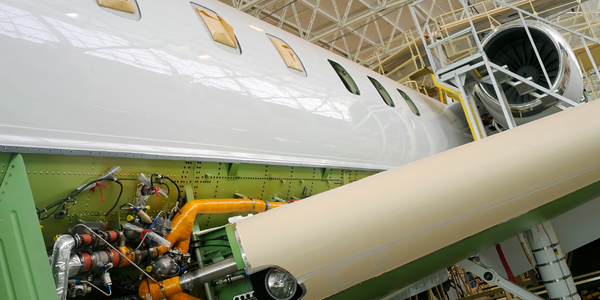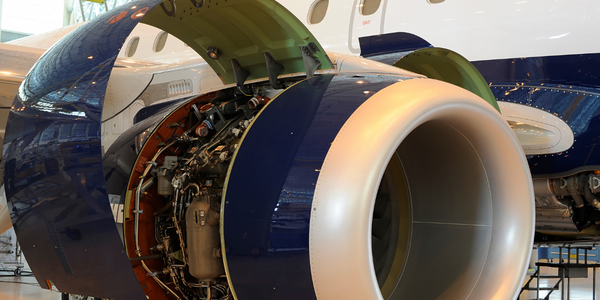Technology Category
- Networks & Connectivity - Global Navigation Satellite System (GNSS)
- Sensors - GPS
Applicable Industries
- Aerospace
- Telecommunications
Applicable Functions
- Procurement
- Product Research & Development
Use Cases
- Behavior & Emotion Tracking
- Leasing Finance Automation
About The Customer
The customer in this case study is NASA, the United States’ civil space program. NASA is a global leader in space exploration, working with U.S. contractors, academics, international and commercial partners to discover and expand knowledge for the benefit of humanity. NASA initiated the Commercial Smallsat Data Acquisition (CSDA) Program in 2017 with the aim of identifying, evaluating, and acquiring commercial datasets to support its Earth science research and application goals. The program also aims to establish continuous and repeatable processes to bring on new commercial data vendors, enable the sustained use of purchased data, establish data management systems and processes, and coordinate with other U.S. Government agencies and international partners on the evaluation and scientific use of commercial data.
The Challenge
NASA, the United States’ civil space program, is a global leader in space exploration. It works with U.S. contractors, academics, international and commercial partners to expand knowledge for the benefit of humanity. One of the significant challenges NASA faces is supporting climate research and earth science. In 2017, NASA initiated the Commercial Smallsat Data Acquisition (CSDA) Program with the Private-Sector Small Constellation Satellite Data Product Pilot Project. The program aimed to identify, evaluate, and acquire commercial datasets to support NASA’s Earth science research and application goals. However, the challenge was to establish continuous and repeatable processes to bring on new commercial data vendors, enable the sustained use of purchased data, establish data management systems and processes, and coordinate with other U.S. Government agencies and international partners on the evaluation and scientific use of commercial data.
The Solution
In March 2020, NASA awarded Spire a CSDA Program contract to provide Earth observation data in alignment with the program’s strategic objectives. Spire specializes in providing comprehensive Earth observation data and continues to develop and expand its offerings. The data covers extreme weather events, climate change trends, and surface data, such as soil moisture and sea ice. In April 2021, NASA renewed Spire’s CSDA Program contract under Task Order (TO) 6. The renewal made Spire’s unique weather, climate, and space weather data more accessible to NASA and U.S. Government-funded researchers. Spire operates a constellation in low Earth orbit (LEO) and collects upwards of 10,000 radio occultations (RO) per day with consistent global coverage. Spire’s RO data is archived and maintained by NASA under the CSDA Program’s SmallSat Data Explorer (SDX) database.
Operational Impact
Quantitative Benefit

Case Study missing?
Start adding your own!
Register with your work email and create a new case study profile for your business.
Related Case Studies.

Case Study
Airbus Soars with Wearable Technology
Building an Airbus aircraft involves complex manufacturing processes consisting of thousands of moving parts. Speed and accuracy are critical to business and competitive advantage. Improvements in both would have high impact on Airbus’ bottom line. Airbus wanted to help operators reduce the complexity of assembling cabin seats and decrease the time required to complete this task.

Case Study
Aircraft Predictive Maintenance and Workflow Optimization
First, aircraft manufacturer have trouble monitoring the health of aircraft systems with health prognostics and deliver predictive maintenance insights. Second, aircraft manufacturer wants a solution that can provide an in-context advisory and align job assignments to match technician experience and expertise.

Case Study
Aerospace & Defense Case Study Airbus
For the development of its new wide-body aircraft, Airbus needed to ensure quality and consistency across all internal and external stakeholders. Airbus had many challenges including a very aggressive development schedule and the need to ramp up production quickly to satisfy their delivery commitments. The lack of communication extended design time and introduced errors that drove up costs.

Case Study
Developing Smart Tools for the Airbus Factory
Manufacturing and assembly of aircraft, which involves tens of thousands of steps that must be followed by the operators, and a single mistake in the process could cost hundreds of thousands of dollars to fix, makes the room for error very small.

Case Study
Accelerate Production for Spirit AeroSystems
The manufacture and assembly of massive fuselage assemblies and other large structures generates a river of data. In fact, the bill of materials for a single fuselage alone can be millions of rows of data. In-house production processes and testing, as well as other manufacturers and customers created data flows that overwhelmed previous processes and information systems. Spirit’s customer base had grown substantially since their 2005 divestiture from Boeing, resulting in a $41 billion backlog of orders to fill. To address this backlog, meet increased customer demands and minimize additional capital investment, the company needed a way to improve throughput in the existing operational footprint. Spirit had a requirement from customers to increase fuselage production by 30%. To accomplish this goal, Spirit needed real-time information on its value chain and workflow. However, the two terabytes of data being pulled from their SAP ECC was unmanageable and overloaded their business warehouse. It had become time-consuming and difficult to pull aggregate data, disaggregate it for the needed information and then reassemble to create a report. During the 6-8 hours it took to build a report, another work shift (they run three per day) would have already taken place, thus the report content was out-of-date before it was ever delivered. As a result, supervisors often had to rely on manual efforts to provide charts, reports and analysis.




